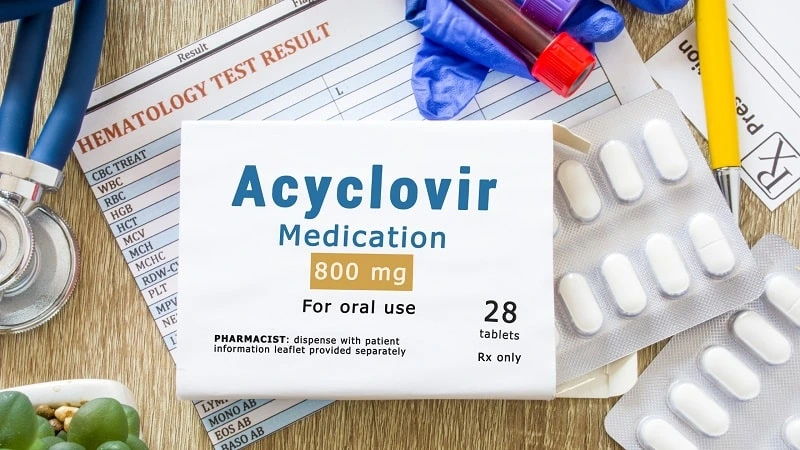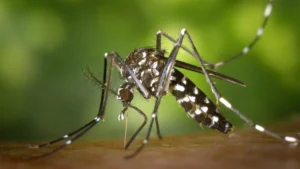Swine flu, also known as H1N1 influenza, is a viral infection that can affect both humans and pigs. Understanding how long does swine flu last is crucial as it helps individuals recognize the stages of the illness and manage it effectively. By knowing how long the virus typically lasts, individuals can take appropriate measures to prevent its spread and seek timely medical attention if needed.
Moreover, being aware of the duration allows healthcare professionals to determine the most suitable treatment options for patients.
With its potential to cause severe complications and impact vulnerable populations, such as children, pregnant women, and individuals with chronic illnesses, gaining insights into the duration of swine flu is essential in ensuring public health and safety.
Symptoms of Swine Flu
Common Symptoms
Swine flu presents with a range of symptoms that resemble those of seasonal flu, but there are some specific signs to watch out for:
- Fever: Swine flu often causes a sudden onset of high fever, usually above 100.4°F (38°C).
- Cough: A dry or productive cough may be present, sometimes accompanied by a sore throat.
- Fatigue: Feeling extremely tired and exhausted is common with swine flu.
- Body Aches: Severe body aches and muscle pain are typical symptoms.
- Headache: Intense headaches may occur, contributing to overall discomfort.
- Chills: Patients may experience sudden chills or shivering.
- Nasal Congestion: Some individuals may have a stuffy or runny nose.

High-risk Groups
Certain populations are more vulnerable to severe complications from swine flu, and they should be especially cautious if they experience flu-like symptoms:
- Pregnant Women: Swine flu poses a higher risk of complications during pregnancy.
- Children: Young children, especially those under 5 years old, are at a higher risk of severe symptoms.
- Elderly Individuals: People aged 65 and older are more susceptible to complications.
- Individuals with Chronic Conditions: Those with chronic diseases like asthma, diabetes, or heart disease are at increased risk.
- Immune-Compromised Individuals: People with weakened immune systems are more susceptible to severe outcomes.
- Healthcare Workers: Those in close contact with infected patients should take precautions.
How Long Does Swine Flu Last?
Duration of the Incubation Period
The incubation period for swine flu refers to the time it takes for the virus to enter the body and start causing symptoms.
On average, this period lasts around 1 to 4 days. However, it can vary from person to person, ranging from 1 to 7 days. During this time, individuals may not show any symptoms but can still spread the virus to others.
Typical Duration of the Illness
Once the symptoms of swine flu appear, the illness usually lasts for about 5 to 7 days. In some cases, it can extend up to 10 days.
The symptoms may be more severe during the initial days and gradually improve as the body’s immune system fights off the infection.
Factors Affecting the Duration
Several factors can influence how long swine flu lasts in an individual:
- Age and Health Status: Young children, elderly individuals, and those with underlying health conditions may experience a longer duration of illness.
- Timely Treatment: Prompt medical attention and appropriate antiviral medications can help shorten the duration of swine flu.
- Complications: If complications arise, such as pneumonia, the illness may last longer and require more extended medical care.
- Immune Response: The body’s immune system plays a vital role in overcoming the infection, so a robust immune response can lead to a quicker recovery.
- Compliance with Self-Care: Adequate rest, hydration, and proper self-care can positively impact the illness’s duration.
Treatment and Management
Antiviral Medications
Antiviral medications play a crucial role in treating swine flu and can help alleviate symptoms, shorten the duration of illness, and reduce the risk of complications.
These medications work by targeting the influenza virus and preventing it from multiplying in the body. It is essential to start antiviral treatment as early as possible, ideally within 48 hours of symptom onset, for the best results.

Commonly prescribed antiviral drugs for swine flu include Oseltamivir (Tamiflu) and Zanamivir (Relenza). Always follow your healthcare provider’s instructions regarding the dosage and duration of treatment.
Read More: A New Covid infection (Omicron); ba.2 Variant Symptoms
Self-Care Tips
In addition to antiviral medications, self-care measures can significantly aid in managing swine flu and promoting a smoother recovery. Here are some practical tips:
- Rest: Get plenty of rest to allow your body to fight off the infection effectively.
- Hydration: Drink ample fluids, such as water, soups, and herbal teas, to stay hydrated and help loosen mucus.
- Fever Management: Take over-the-counter medications like acetaminophen or ibuprofen to reduce fever and alleviate discomfort. Follow the recommended dosages.
- Isolation: Stay home and avoid contact with others to prevent the spread of the virus.
- Respiratory Etiquette: Cover your nose and mouth with a tissue or your elbow when coughing or sneezing to prevent the spread of droplets.
When to Seek Medical Attention
While most cases of swine flu resolve on their own, some individuals may develop severe symptoms or experience complications that require medical attention. Seek immediate medical care if you experience the following:
- Difficulty Breathing: If you have shortness of breath or breathing difficulties, seek medical help promptly.
- Chest Pain: Chest pain or pressure can be a sign of severe respiratory complications and should not be ignored.
- Persistent Vomiting: Frequent and persistent vomiting can lead to dehydration and requires medical evaluation.
- Bluish Skin Color: Bluish or grayish skin discoloration indicates oxygen deficiency and demands immediate medical attention.
- Worsening Symptoms: If your symptoms are getting progressively worse instead of improving, contact your healthcare provider.
Preventive Measures
Vaccination
Vaccination is one of the most effective ways to prevent swine flu. Getting an annual flu vaccine can provide protection against swine flu and other influenza strains.
These vaccines are safe and recommended for most individuals, especially those at higher risk of complications, such as young children, elderly individuals, pregnant women, and people with chronic health conditions.
Health authorities usually update the flu vaccine each year to match the prevalent strains of the virus. Make sure to consult your healthcare provider to determine the appropriate timing and suitability for vaccination.
Hygiene Practices
Practicing good hygiene is crucial in preventing the transmission of swine flu and other infectious diseases. Follow these hygiene measures:
- Handwashing: Wash your hands frequently with soap and water for at least 20 seconds, especially after coughing, sneezing, or being in public places.
- Hand Sanitizers: Use alcohol-based hand sanitizers when soap and water are not available.
- Avoid Touching Face: Avoid touching your eyes, nose, and mouth, as the virus can enter the body through these entry points.
- Disinfection: Regularly disinfect frequently-touched surfaces, such as doorknobs, light switches, and electronic devices.
Avoiding Contact with Infected Individuals
To reduce the risk of contracting swine flu, it is essential to avoid close contact with people who are sick.
If you suspect someone has swine flu, maintain a safe distance and avoid sharing personal items, such as utensils and towels.
Additionally, if you are sick with flu-like symptoms, stay home to prevent spreading the virus to others.
Respiratory Etiquette
Practicing respiratory etiquette can help minimize the spread of swine flu. Follow these guidelines:
- Cover Your Nose and Mouth: Use a tissue or your elbow to cover your nose and mouth when you cough or sneeze.
- Dispose of Tissues Properly: Dispose of used tissues in a waste bin immediately and wash your hands afterward.
- Mask Usage: Consider wearing a mask, especially in crowded or high-risk settings.
Healthy Lifestyle
Maintaining a healthy lifestyle can boost your immune system and reduce the risk of swine flu:
- Balanced Diet: Eat a nutritious diet rich in fruits, vegetables, whole grains, and lean proteins.
- Exercise: Engage in regular physical activity to support overall health and immunity.
- Adequate Sleep: Get enough sleep each night to allow your body to recover and regenerate.
Conclusion
In conclusion, understanding the duration, symptoms, treatment, and preventive measures of swine flu is crucial in managing this viral infection effectively.
Swine flu typically lasts around 5 to 7 days, but the duration can vary based on individual factors and timely medical intervention.
Early detection and prompt treatment with antiviral medications can help shorten the illness and reduce the risk of complications.
Symptoms of swine flu include fever, cough, fatigue, body aches, headache, chills, and nasal congestion.
High-risk groups, such as pregnant women, young children, the elderly, and individuals with chronic conditions, should be especially cautious and seek medical attention if flu-like symptoms arise.
Preventing swine flu involves vaccination, practicing good hygiene, avoiding contact with infected individuals, and following respiratory etiquette.
Maintaining a healthy lifestyle also contributes to a stronger immune system.
By taking these preventive measures and being aware of the signs and duration of swine flu, individuals can play an active role in safeguarding their health and the health of their communities.
FAQs
Q1: Can swine flu be deadly?
Swine flu can lead to severe complications and, in some cases, may be fatal, especially for high-risk groups. Prompt medical attention is essential for individuals experiencing severe symptoms or respiratory distress.
Q2: Is there a vaccine for swine flu?
Yes, there is a flu vaccine that provides protection against swine flu and other influenza strains. Annual vaccination is recommended, especially for those at higher risk of complications.
Q3: How can I protect myself from swine flu?
You can protect yourself by getting vaccinated, practicing good hygiene, avoiding contact with sick individuals, and following respiratory etiquette.
Q4: What should I do if I suspect I have swine flu?
If you suspect you have swine flu or experience flu-like symptoms, stay home, rest, and seek medical advice. Antiviral medications may be prescribed if deemed necessary.
Q5: Can I get swine flu from eating pork?
No, swine flu is not transmitted through properly cooked pork. The virus spreads through respiratory droplets from infected individuals.
Q6: Is swine flu the same as seasonal flu?
Swine flu is caused by a different strain of the influenza virus compared to seasonal flu. The symptoms may be similar, but swine flu can be more severe in certain cases.
Q7: Can I travel during a swine flu outbreak?
During a swine flu outbreak, it is advisable to limit non-essential travel and take necessary precautions, such as wearing masks in crowded places.
Q8: Is there a specific treatment for swine flu?
Antiviral medications are used to treat swine flu and can help alleviate symptoms and shorten the duration of the illness. Self-care measures are also beneficial.
Q9: Can swine flu be prevented entirely?
While it may not be entirely preventable, vaccination and adopting preventive measures can significantly reduce the risk of contracting swine flu.
Medical References:
- Centers for Disease Control and Prevention. (2020). Influenza (Flu) Antiviral Drugs. [Online]. Available at: https://www.cdc.gov/flu/treatment/antiviralmedications.htm
- World Health Organization. (2020). Swine Influenza. [Online]. Available at: https://www.who.int/health-topics/swine-influenza#tab=tab_1
- National Institute of Allergy and Infectious Diseases. (2018). Influenza (Flu). [Online]. Available at: https://www.niaid.nih.gov/diseases-conditions/influenza-flu
- Mayo Clinic. (2021). Swine Flu (H1N1 Flu). [Online]. Available at: https://www.mayoclinic.org/diseases-conditions/swine-flu/symptoms-causes/syc-20378101
- Healthline. (2021). H1N1 (Swine Flu): Symptoms, Causes, and Treatments. [Online]. Available at: https://www.healthline.com/health/h1n1-flu
- MedicineNet. (2021). H1N1 Influenza (Swine Flu). [Online]. Available at: https://www.medicinenet.com/h1n1_influenza_swine_flu/article.htm



